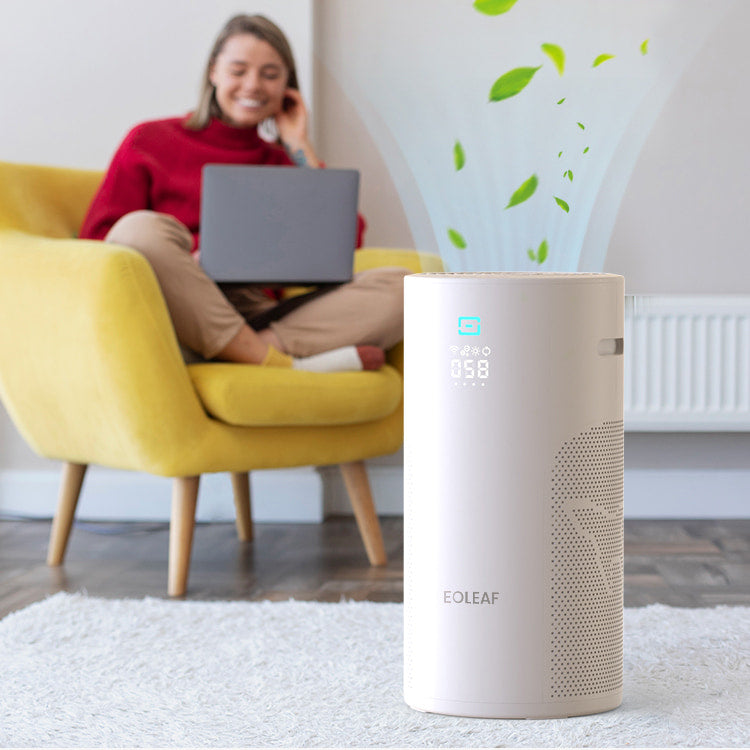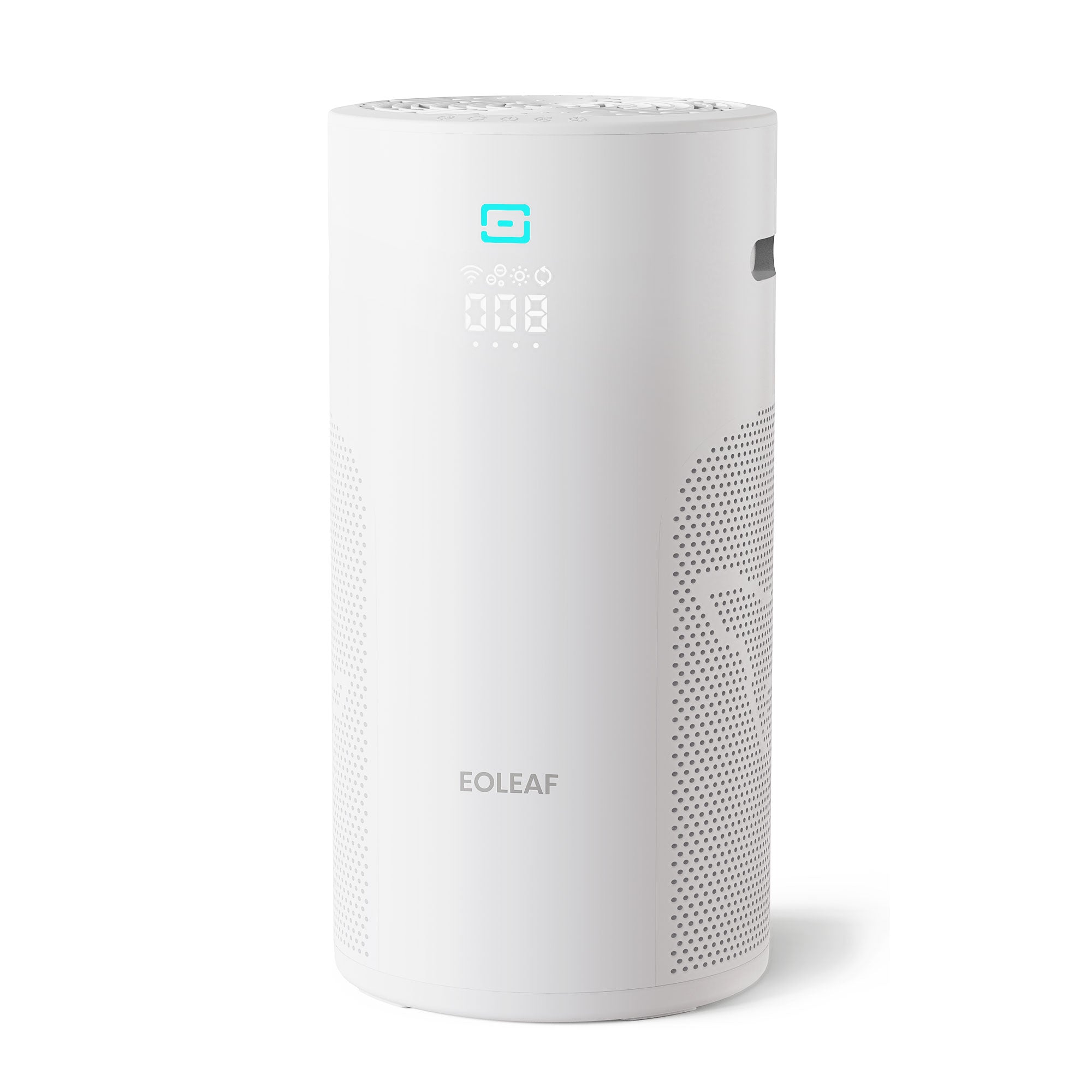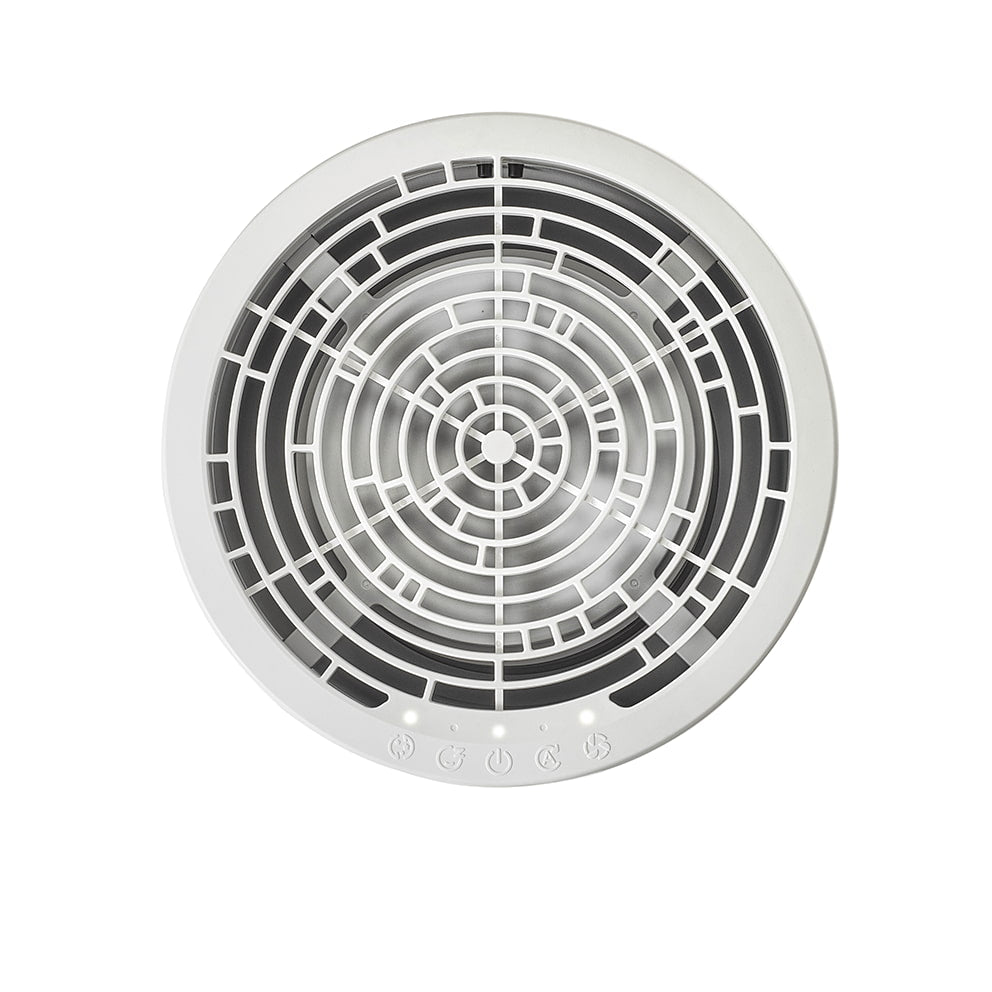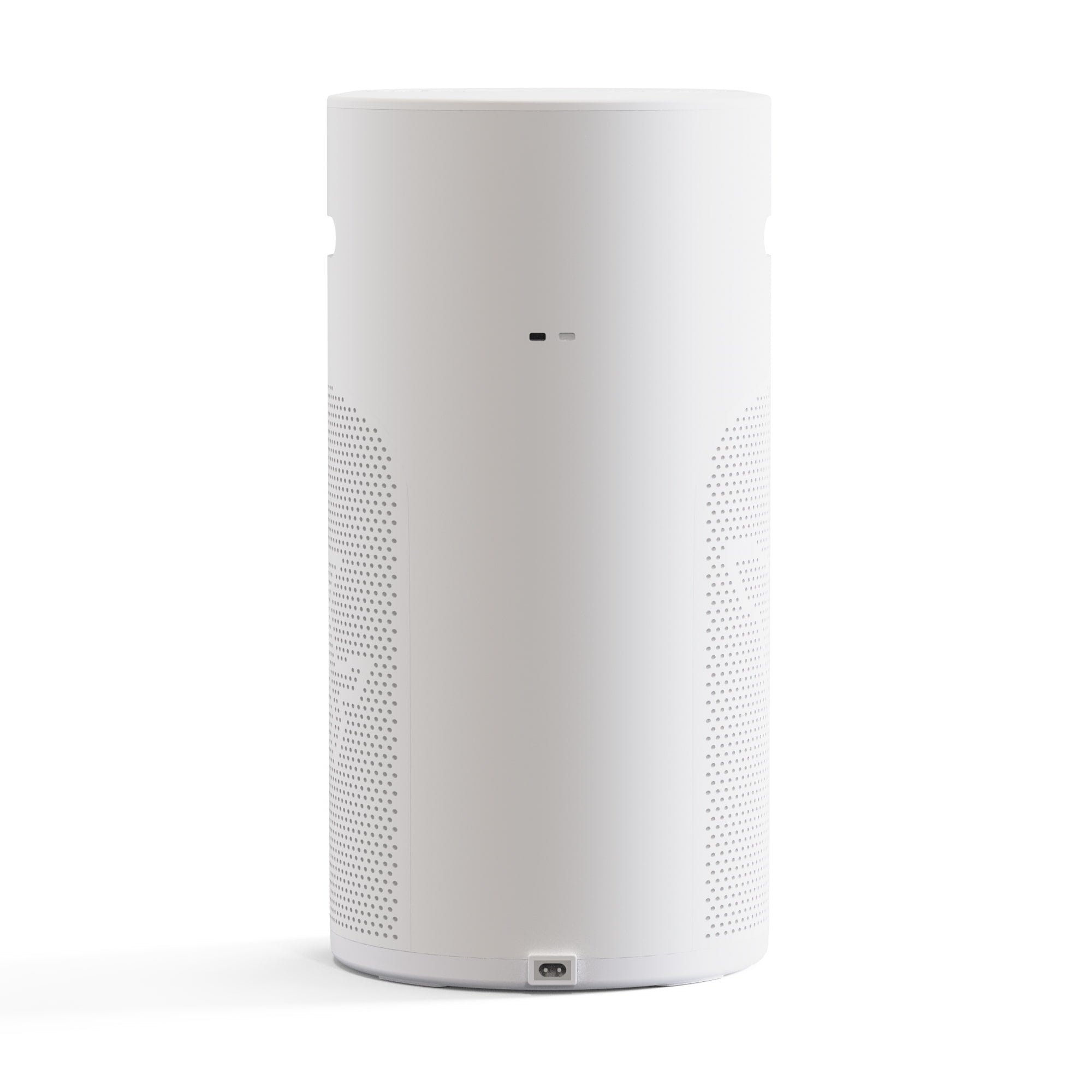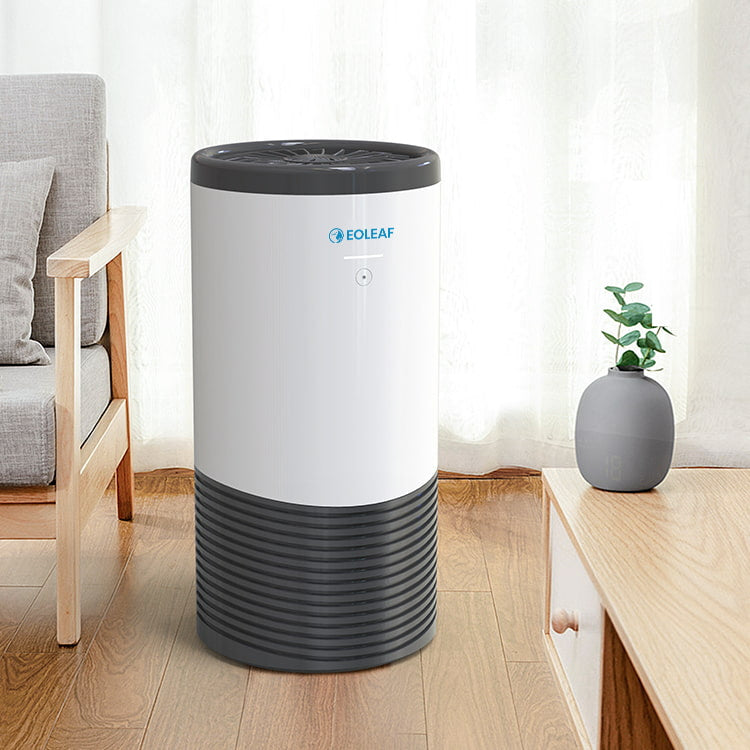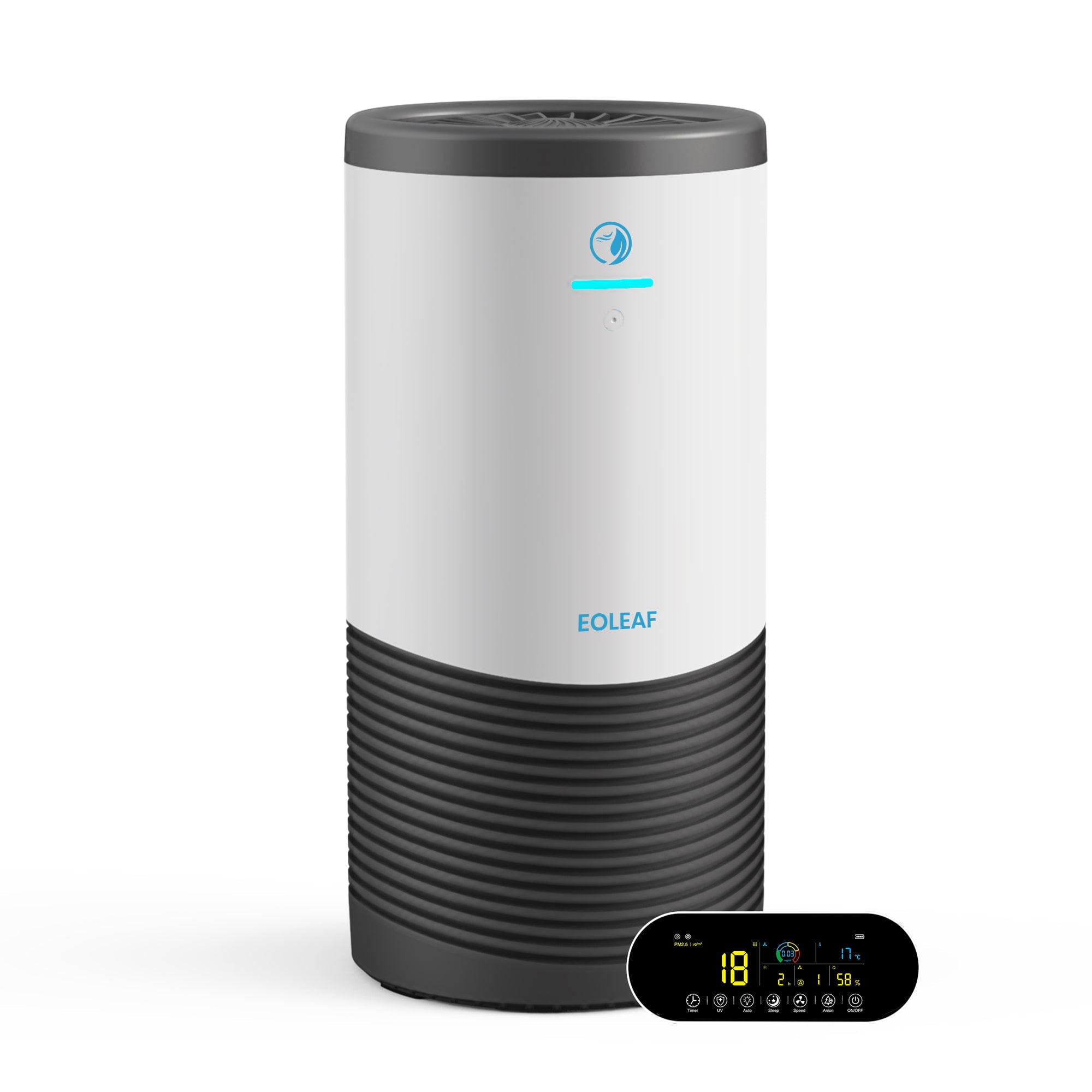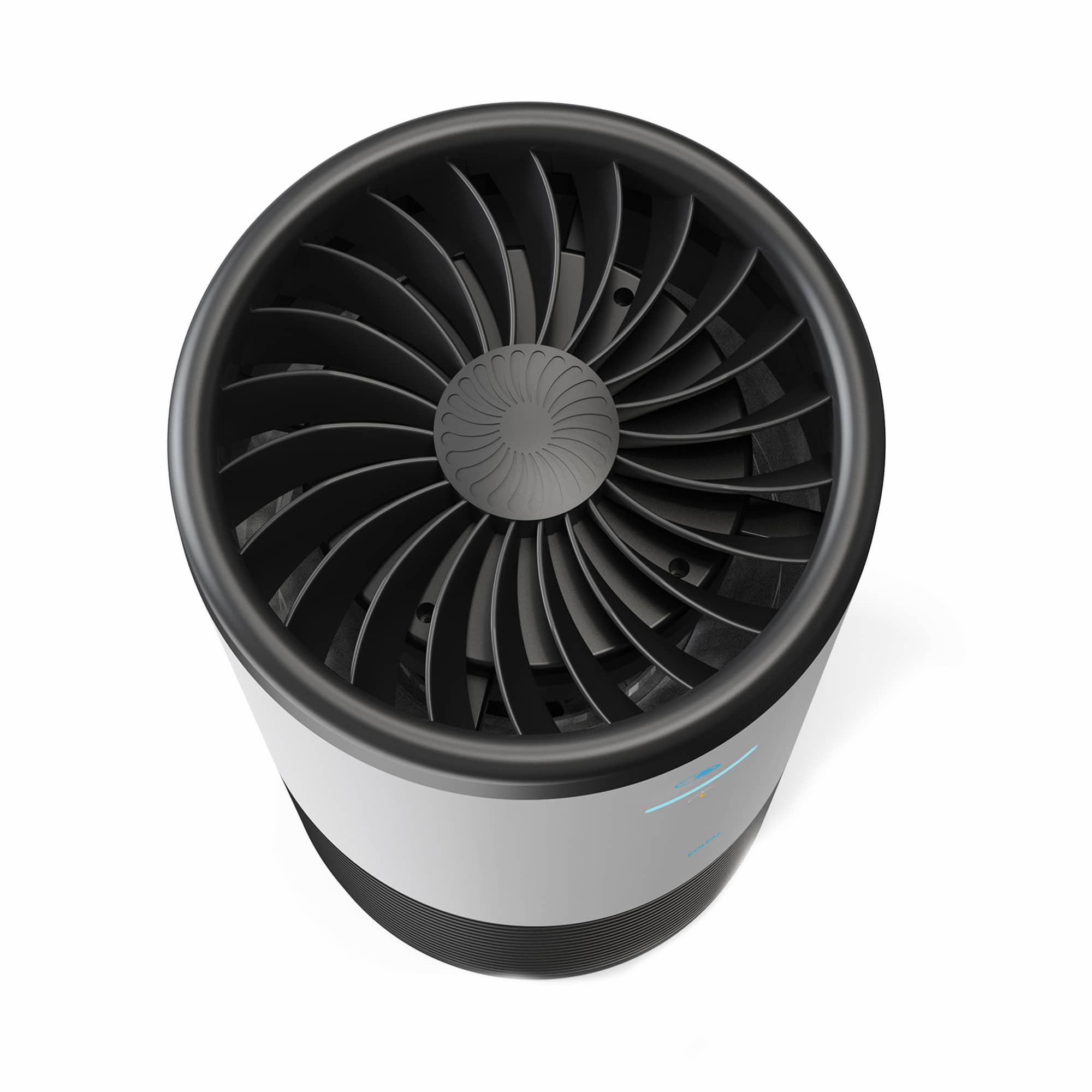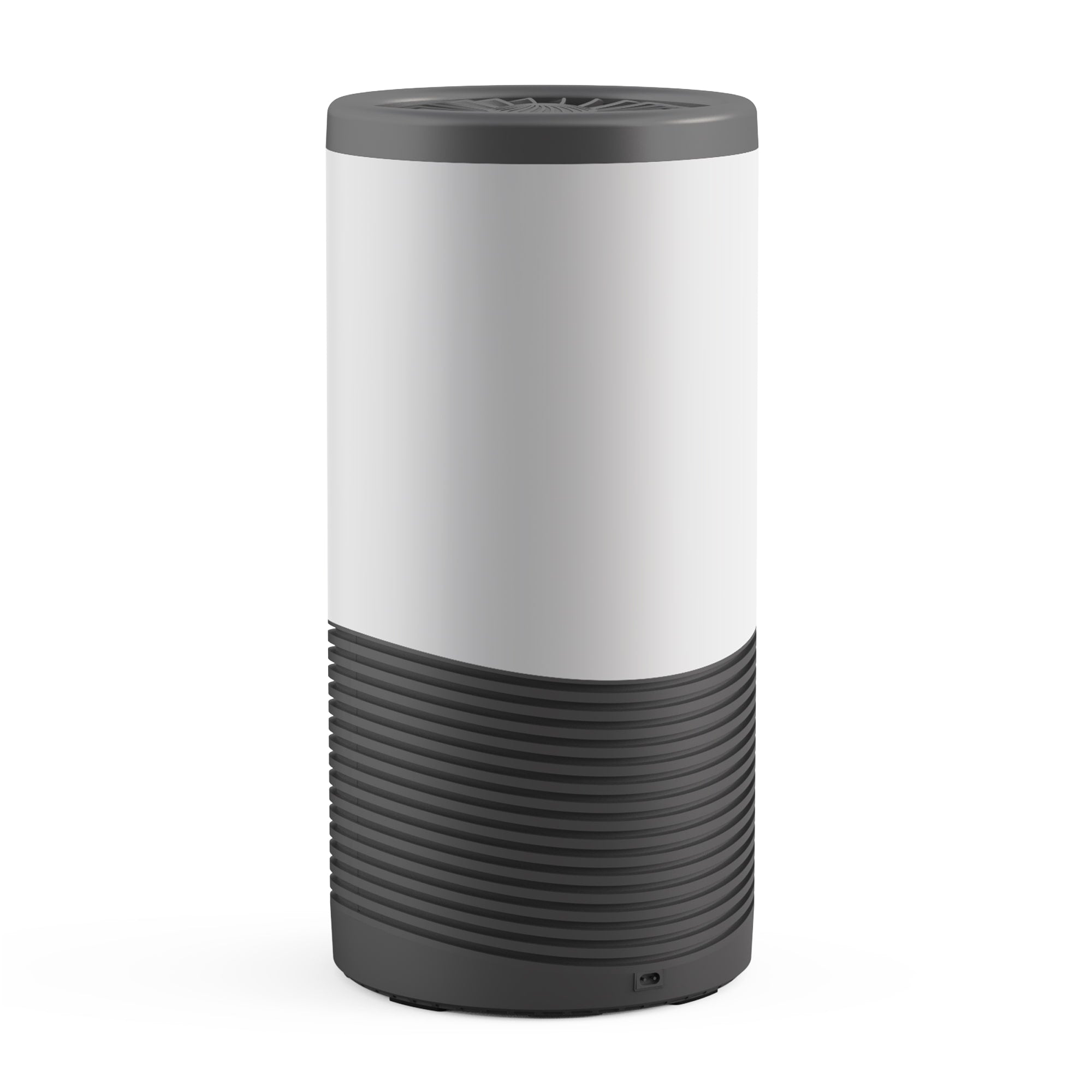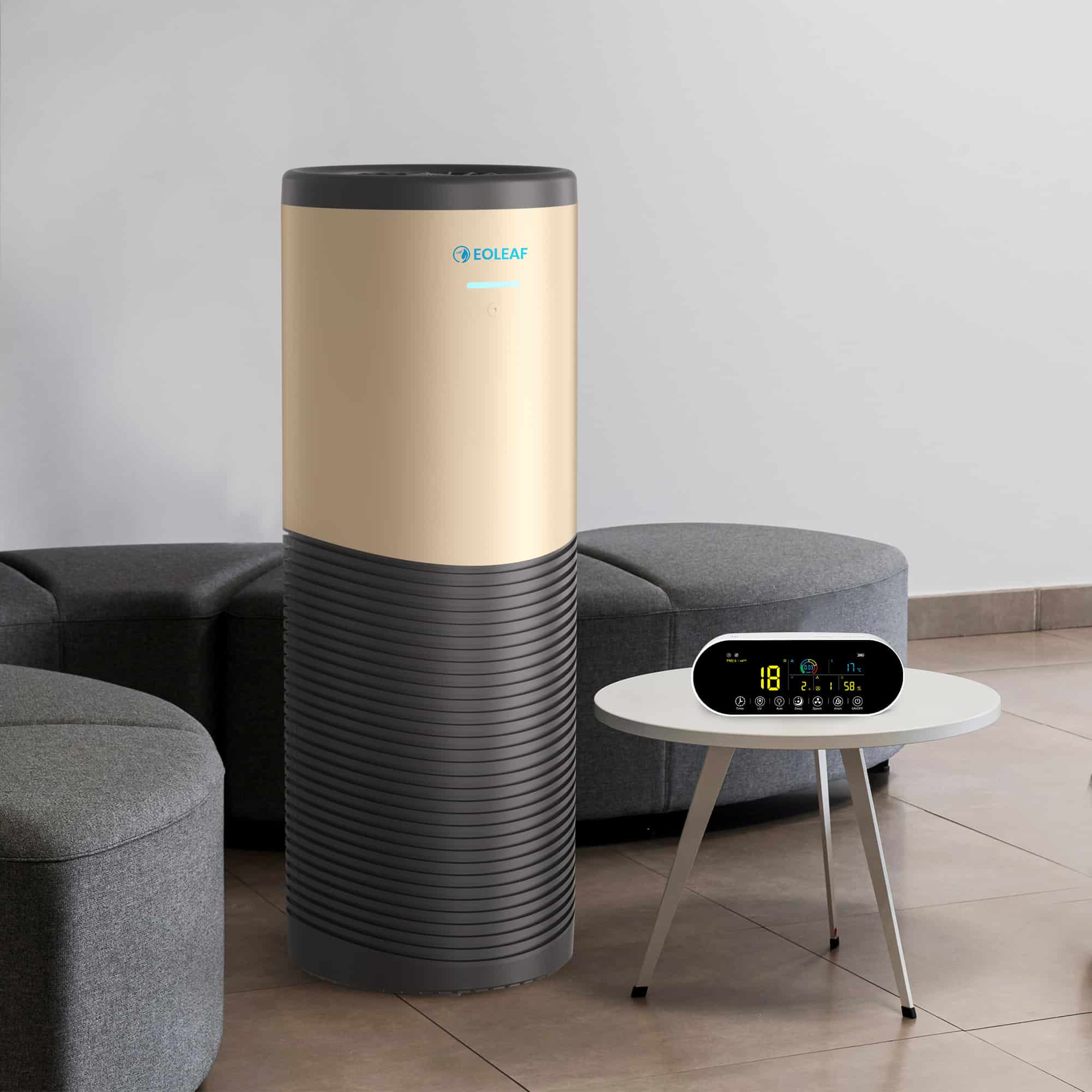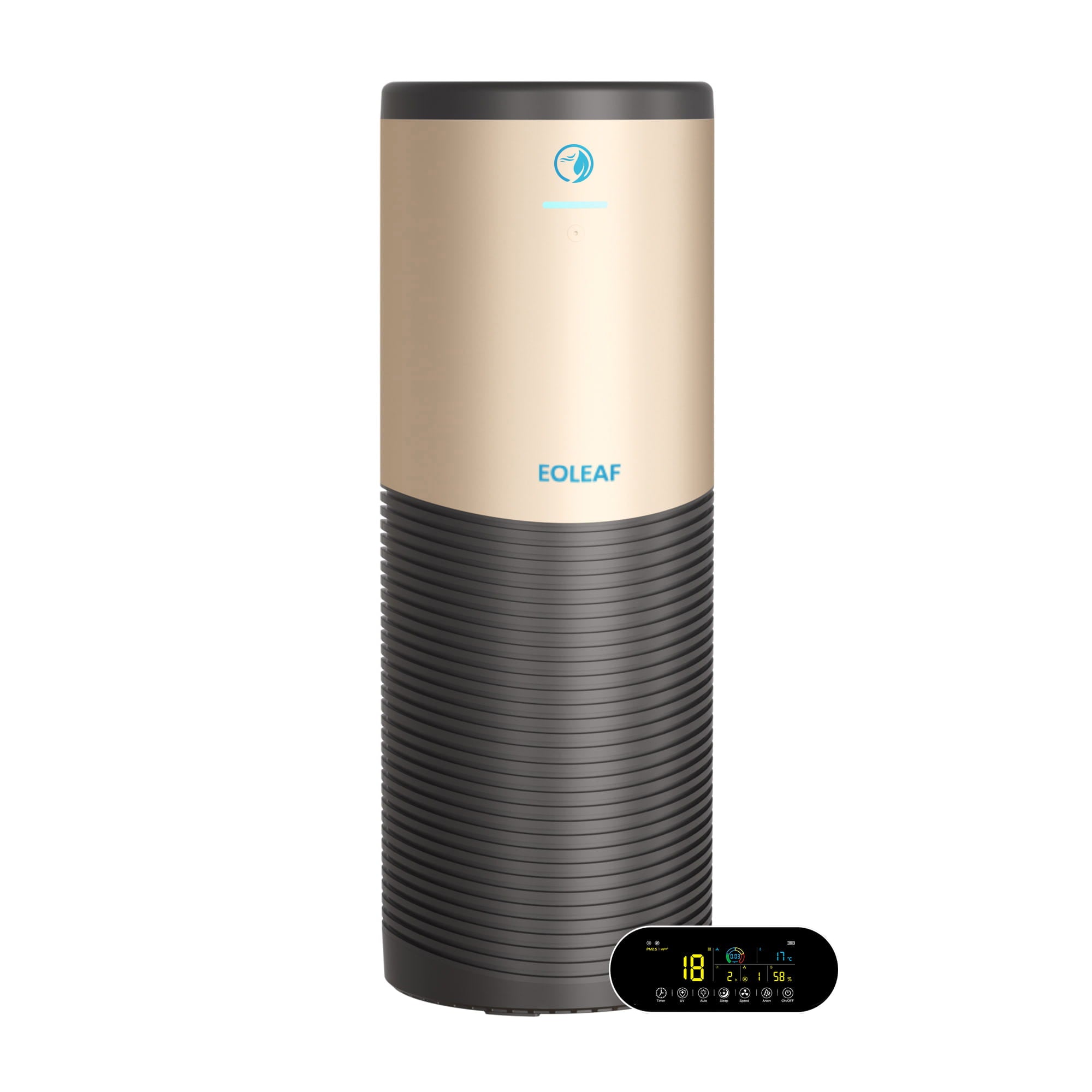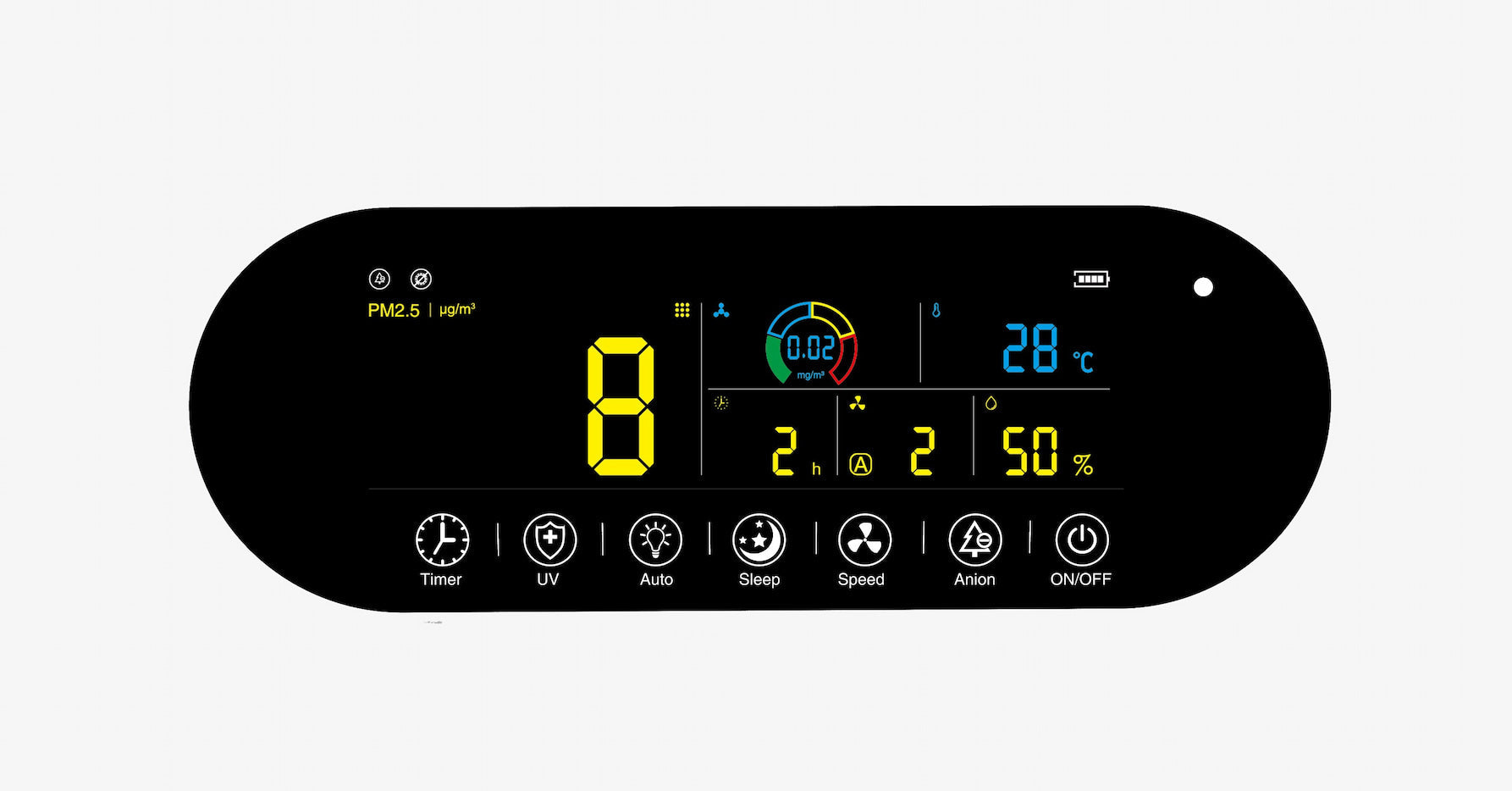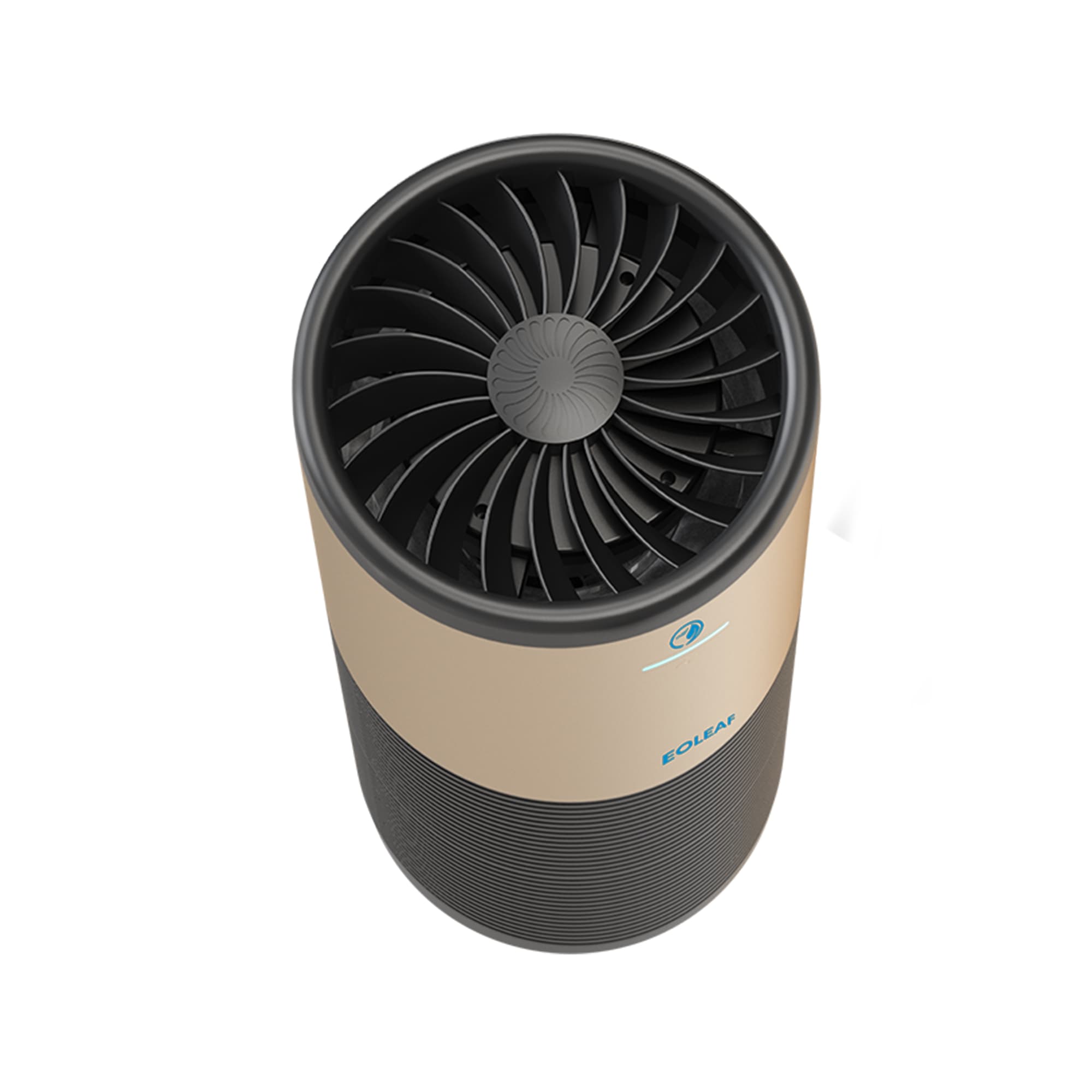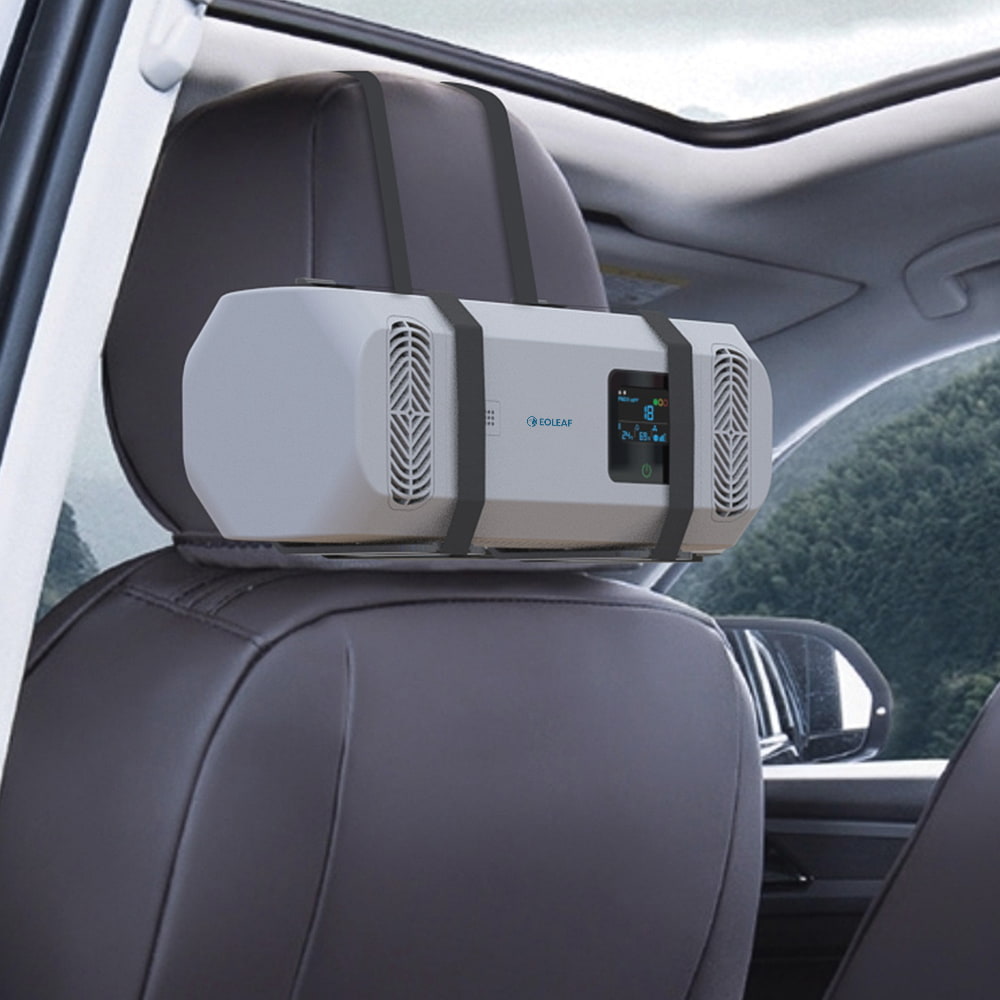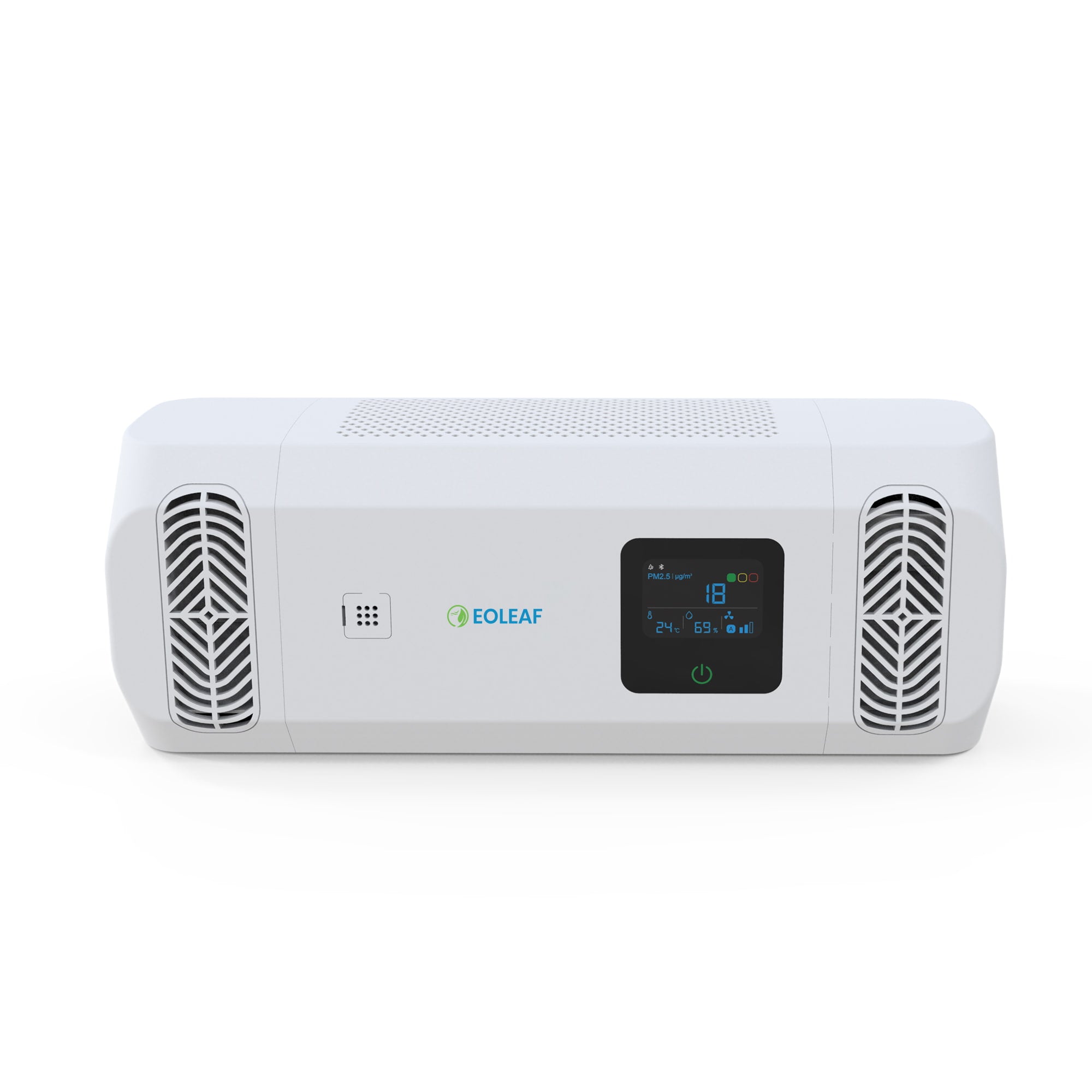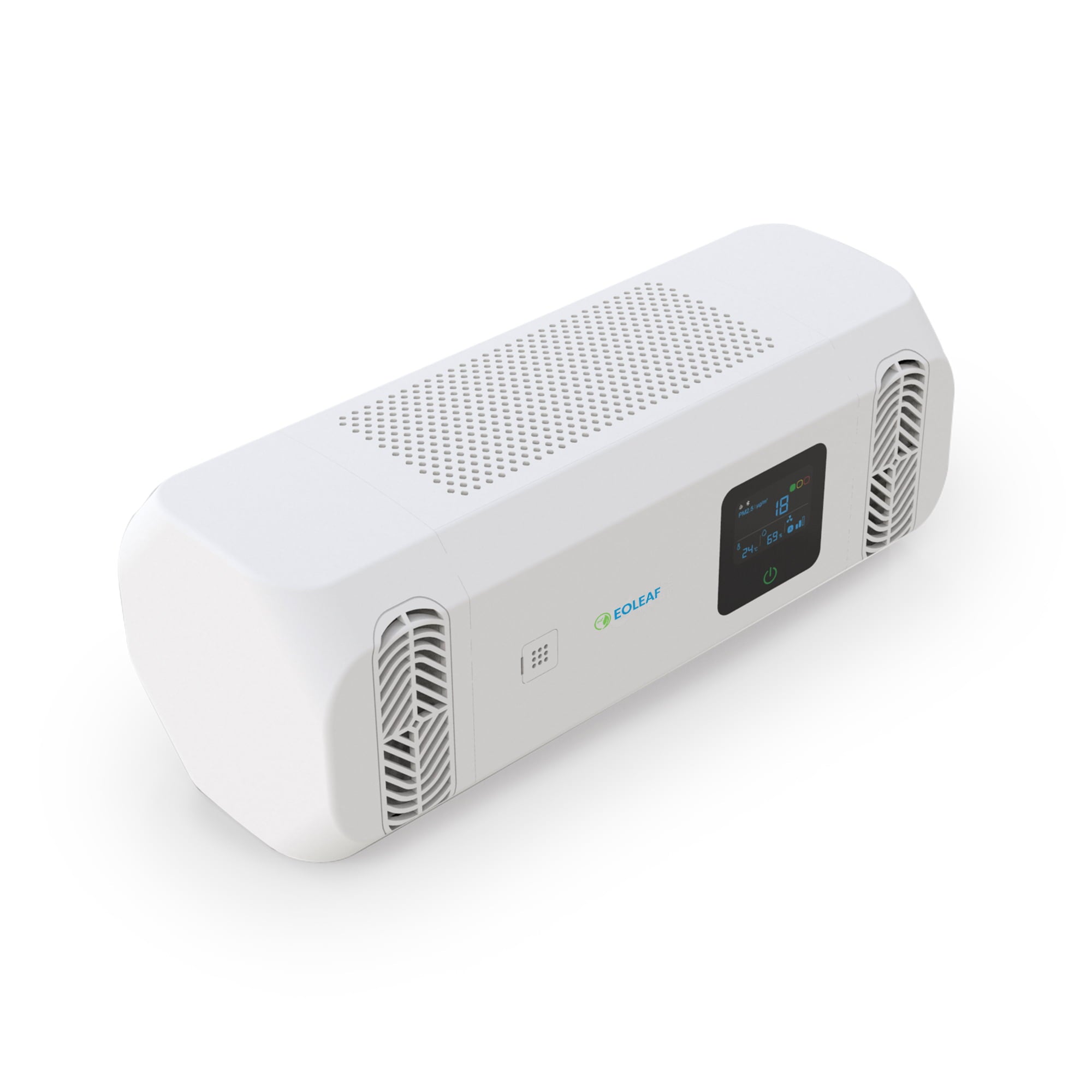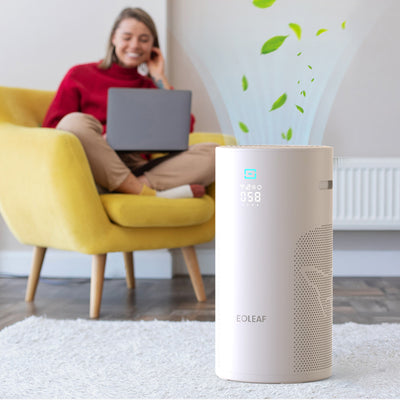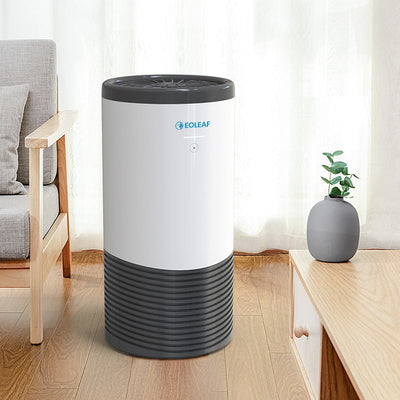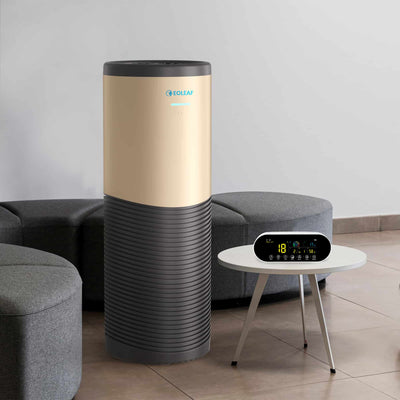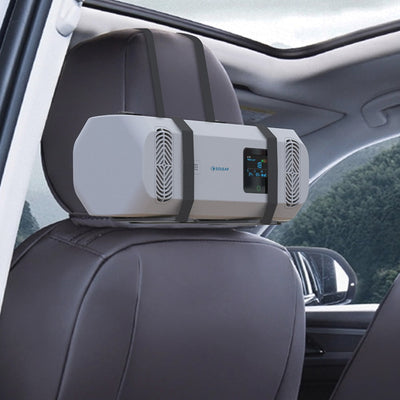Can air purifiers alleviate asthma symptoms?
Asthma is a very common affliction. It is the number one disease affecting children and, in the UK alone, it affects more than 8 million people1. It is also very common amongst people above the age of 65, leading to 1,000 deaths per year amongst those in this age group. What, exactly, is asthma? Can an air purifier help ease asthma symptoms in asthma sufferers? Find out more below.
What is asthma?
Asthma defined
Asthma is defined by fits and episodes of difficulty in breathing (shortness of breath), wheezing, dry cough, or a feeling of tightness in the chest. According to the National Heart, Lung, and Blood Institute (NHLBI), it is a chronic medical condition that tightens and inflames the airways in the lungs2. When air is breathed in by someone suffering from asthma, the air becomes trapped in the chest and the thorax becomes blocked. These two events can lead to an irritating cough and a sensation of anxiety in many asthmatics. Asthma attacks can last anywhere between several minutes to several hours, and their intensity varies greatly depending upon the individual.

People experiencing asthma usually require a prescription and treatment with cortisone, Ventolin, or other similar medication to alleviate their symptoms. These treatments improve the breathing of the affected individual by allowing the bronchi in the lungs to dilate properly.
Asthma statistics in the UK
According to an NHS report, 2-3% of primary care consultations are due to asthma. Asthma can severely impact quality of life for those suffering from it, making things like education and work difficult. It leads to 60,000 hospital admissions and 200,000 bed days per year in the UK3.
Asthma attacks are responsible for the deaths of three people per day in the UK, and every 10 seconds, someone experiences a potentially fatal asthma attack that could be avoided with proper care and interventions3.
The National Institute for Health and Care Excellence (NICE) claims that “185 people in the UK are admitted to hospital with an asthma attack, and 5.4 million people are using treatments for asthma” every day4. There were 41,150 hospital admissions in the years of 2020-2021 alone where the primary diagnosis was asthma.
The following map shows the regional estimated prevalence of GP patients of all ages who have been prescribed drugs for asthma in the past 12 months:

Source 5
What triggers asthma attacks and how can one alleviate asthma symptoms?
Asthma attack triggers can vary depending upon the person. Everyone who suffers from asthma should know their triggers well and be prepared for an asthma attack if exposed.
For people suffering from asthma, improving air quality can greatly help reduce episodes amongst asthmatics. Asthma attacks are often triggered by fine particles present in the air that we breathe. These fine particles can inflame the airways, and when present in the air, they greatly increase the chance of falling victim to an asthma attack.
Fine particles are not only found outdoors, however. They are easily found within the home as well. Although it might seem counter-intuitive, indoor air is, on average, 2 to 5 times more polluted than outdoor air. Some common asthma attack triggers include:
- Second-hand tobacco smoke, including vaping – people who live with asthmatics should try to quit smoking and/or make their home strictly smoke-free
- Dust and dust mites – keep a clean home, use allergen-proof bedding, and avoid down-filled pillows and mattresses to help reduce asthma attack probability
- Pet dander – keep pets out of the bedroom, wash them regularly, and use an air purifier with a HEPA filter to ward off asthma attacks
- Mould – breathing in mould spores can cause an asthma attack even if you are not allergic
- Dry any wet items within 24 hours
- Keep humidity levels low (between 30 to 50% which can be monitored using a hygrometer)
- Fix leaky pipes
- Scrub away any mould that is present in the home and be sure to let it dry completely
- If scrubbing is not sufficient, use an anti-mould product or hire a professional for treatment.
- Pollen – avoid going outdoors on high pollen count days or wear a mask outdoors and protect your eyes
- Remember to rinse your face and hair regularly
- Outdoor and indoor air pollution – track daily outdoor pollution levels in your area using websites like DEFRA’s https://uk-air.defra.gov.uk/ and purchase an air purifier to reduce indoor air pollution concentration6

The following lifestyle changes may also help keep asthma attacks and symptoms at bay:
- Maintain a moderate weight
- Try breathing exercises
- Exercise regularly
- Avoid weather triggers
- Manage stress
Buying an air purifier to alleviate asthma symptoms:
-
Filter 99.97% of germs and viruses using unique and innovative filtration technologies
-
Real-time air quality data
-
Quiet yet powerful devices (up to 670 m3/hr)
-
Discreet and elegant design
-
Easy to use (equipped with Automatic mode) and does not require installation or assembly
-
Can be placed anywhere in your space thanks to our 360° technology
-
Can be controlled remotely via smartphone app
-
Smart and customisable devices (smart scheduling, automatic power off/on, etc.)
How an air purifier can help you
Numerous studies have focused on the benefit of air purifiers for those suffering from asthma.
A 2016 study by the American Academy of Paediatrics demonstrated that portable, high-efficiency particulate air (HEPA) purifiers reduce particles in the air by around 25–50% and reduce asthma symptoms and attacks7. Another study found that indoor air cleaning can help significantly improve indoor air quality by lowering levels of PM2.5 (a dangerous form of particulate matter), thus reducing asthma attacks and improving respiratory functions8.
Yet another study in 2016 was performed on children with asthma in Shanghai by Chinese and American researchers during a period of peak pollution. It demonstrated that when air purifiers containing HEPA filters were added to children’s rooms, the concentrations of PM2.5 in these rooms were decreased by a third to two thirds compared to low-quality filters (not HEPA-certified). Furthermore, improvement in children’s breathing was remarkable: there was a noted 73.1% increase in respiratory elasticity with a reduced concentration of PM2.5. The addition of HEPA filters in a living space can clearly assist those suffering from asthmas9.
Three more studies focusing on environmental factors like fine particle pollution and their impact on asthma attack incidence have shown positive results:
- A 2020 study on children with asthma found that air purifiers can decrease medication use in children with asthma by reducing PM2.5 levels10
- A 2021 study on patients with allergic asthma discovered that decreasing indoor allergen and PM levels in indoor air can drastically improve quality of life for asthma sufferers11
- A 3-month review in 2017 in Ireland found a significant reduction in airborne particulates after the installation of an air purifier led to improved asthma symptoms12
Improve your asthma symptoms with Eoleaf
All of our Eoleaf purifiers are all equipped with a HEPA H13 filter and serve as a fantastic ally for those experiencing asthma symptoms. These filters capture up to 99.97% of particles with a diameter greater than or equal to 0.01 µm in a single pass to completely purify indoor air.
For those with fragile respiratory tracts, our devices contain some other high-performance technologies that can also help alleviate respiratory distress. Activated carbon filters, an example of one of these technologies, helps to rid the air of chemical pollutants such as ozone, benzene, and other volatile organic compounds (VOCs). Thanks to its high gas absorption capacity, activated carbon also very effectively combats bad odours.
For any questions you may have before making your purchase, feel free to contact us. We have also created a thorough Buying Guide to help you consider all the factors necessary before purchasing an air purifier for your space.

Resources
1 Asthma statistics. British Lung Foundation. (n.d.). https://statistics.blf.org.uk/asthma
2 U.S. Department of Health and Human Services. (2022, March 24). What is asthma?. National Heart Lung and Blood Institute. https://www.nhlbi.nih.gov/health/asthma
3 NHS. (2023, February 15). RightCare asthma scenario. NHS choices. https://www.england.nhs.uk/long-read/rightcare-asthma-scenario/
4 National Institute for Health and Care Excellence. (2017, November 29). Information for the public: Asthma: Diagnosis, monitoring and Chronic Asthma Management. NICE. https://www.nice.org.uk/guidance/ng80/informationforpublic
5 Baker, C. (2021, April 27). Constituency data: health conditions. House of Commons Library. https://commonslibrary.parliament.uk/constituency-data-how-healthy-is-your-area/
6 Centers for Disease Control and Prevention. (2022, December 12). Common asthma triggers. National Center for Environmental Health. https://www.cdc.gov/asthma/triggers.html
7 Matsui, E. C., Abramson, S. L., Sandel, M. T., Dinakar, C., Irani, A.-M., Kim, J. S., Mahr, T. A., Pistiner, M., Wang, J., Lowry, J. A., Ahdoot, S., Baum, C. R., Bernstein, A. S., Bole, A., Brumberg, H. L., Campbell, C. C., Lanphear, B. P., Pacheco, S. E., Spanier, A. J., & Trasande, L. (2016). Indoor environmental control practices and asthma management. Pediatrics, 138(5). https://publications.aap.org/pediatrics/article/138/5/e20162589/60439/Indoor-Environmental-Control-Practices-and-Asthma?autologincheck=redirected
8 Miyoshi, T., Furuie, W., Otani, Y., Tani, C., Waku, M., Koike, F., Miyazaki, Y., Inase, N., Sasano, T., Akaza, M., Kubota, T., & Sumi, Y. (2018). Can air purifier promote the indoor cleanliness and improve the patients with asthma? Clinical Problems. https://erj.ersjournals.com/content/52/suppl_62/PA1691
9 Xing YF, Xu YH, Shi MH, Lian YX. The impact of PM2.5 on the human respiratory system. J Thorac Dis. 2016 Jan;8(1):E69-74. doi: 10.3978/j.issn.2072-1439.2016.01.19. PMID: 26904255; PMCID: PMC4740125.
10 Lee GH, Kim JH, Kim S, Lee S, Lim DH. Effects of Indoor Air Purifiers on Children with Asthma. Yonsei Med J. 2020 Apr;61(4):310-316. doi: 10.3349/ymj.2020.61.4.310. PMID: 32233173; PMCID: PMC7105409.
11 Jia-Ying L, Li-Li O, Jing M, Xin-Yuan L, Li-Min F, Hai-Cheng L, Bao-Qing S. Efficacy of air purifier therapy for patients with allergic asthma. Allergol Immunopathol (Madr). 2021 Sep 1;49(5):16-24. doi: 10.15586/aei.v49i5.146. PMID: 34476917.
12 Sodeau, J. (2017, October 12). Asthma & Indoor Air Quality. University College Cork; Asthma Society of Ireland.
Eoleaf's range of air purifiers
NeoPur 400 air purifier
40 m² (450 sq ft) coverage area - Smart & Connected
TeraPur 600 air purifier
80 m² (850 sq ft) coverage area - Ultimate all-in-one
AltaPur 700 air purifier
120 m² (1300 sq ft) coverage area - Professional model
PurCar air purifier
HEPA H13 Filter & Ioniser - For all vehicles


